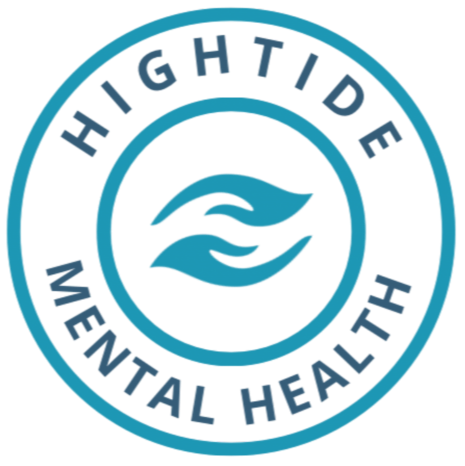OBSESSIVE COMPULSIVE DISORDER TREATMENT
Obsessive Compulsive Disorder (OCD)
If you are here, it may be because you or someone you love is struggling with obsessive thoughts or repetitive behaviors that feel impossible to stop. OCD is one of the most misunderstood mental health conditions. Many people think it just means “liking things neat” or “being particular,” but OCD is much more than that. It’s a disorder that can take over daily life and cause a lot of distress.
OCD vs OCPD
A lot of confusion comes from the difference between Obsessive-Compulsive Disorder (OCD) and Obsessive-Compulsive Personality Disorder (OCPD). OCD is an anxiety disorder. It involves unwanted thoughts (obsessions) and repetitive behaviors or mental rituals (compulsions) that are done to reduce fear. OCPD is different. It is a personality disorder where people feel a strong need for control, rules, and perfection. Someone might think they “have OCD” because they like things clean or organized, but true OCD is about being trapped in a cycle of fear and behavior, not just being orderly.
What OCD Really Is
OCD has two main parts:
- Obsessions: unwanted thoughts, images, or urges that create anxiety or distress.
- Compulsions: behaviors or mental acts done to try to reduce that anxiety.
The problem is the cycle never really ends. Obsessions bring fear, compulsions bring temporary relief, but the thoughts come back again. Over time, the rituals become stronger and harder to resist, taking more time and energy every day.
Examples of OCD in real life:
Contamination OCD
- Obsessions: fear of germs, illness, or contamination.
- Compulsions: excessive washing, cleaning, or avoiding contact.
- Example: Someone washes their hands so much their skin cracks, convinced they’ll spread illness to family if they don’t.
Checking OCD
- Obsessions: fear of harm from being careless.
- Compulsions: checking locks, appliances, or safety items over and over.
- Example: Someone spends nearly an hour checking the stove before bed, terrified they’ll cause a fire if they leave it unchecked.
Harm OCD
- Obsessions: intrusive fears of accidentally or intentionally hurting someone.
- Compulsions: avoiding sharp objects, asking for reassurance, mentally reviewing actions.
- Example: A parent avoids holding their baby because of a sudden thought, “What if I drop them?”
Relationship OCD (ROCD)
- Obsessions: constant doubts about love and commitment.
- Compulsions: replaying conversations, asking for reassurance, testing feelings.
- Example: Someone analyzes every word their partner says and asks friends daily, “Do you think they really love me?” even after constant reassurance.
Pure OCD
Not all OCD looks like rituals you can see. Many people experience Pure OCD (Pure O), where the compulsions happen in the mind.
This can look like replaying thoughts over and over, avoiding certain situations, or silently repeating phrases to feel safe. For example, someone may have constant intrusive fears about harming others but spend hours mentally “proving” to themselves that they would never do it. Because the compulsions are hidden, many people don’t realize they have OCD, even though the suffering is very real.
Treatment for OCD
Exposure and Response Prevention (ERP): The main treatment for OCD. It helps people face fears step by step without doing compulsions, breaking the cycle over time.
Cognitive Behavioral Therapy (CBT): Helps people notice and challenge the thinking patterns that feed obsessions and compulsions.
Mindfulness and Acceptance: Learning how to sit with intrusive thoughts without letting them take over, and letting them pass without reacting.
At HighTide Mental Health, we use these methods and also partner with centers that specialize in intensive OCD treatment if a higher level of care is needed.
Levels of Care for OCD at Hightide
Partial Hospitalization Program (PHP): Full-day treatment from 9:00am to 4:00pm. Clients with OCD practice ERP in a safe environment, attend daily therapy groups, and build skills for handling anxiety. Individual sessions focus on creating exposure plans and practicing them step by step. Psychiatry support is also included, and medications like SSRIs (such as fluoxetine or sertraline) are often used to help reduce obsessive thought patterns.
Intensive Outpatient Program (IOP): Several sessions a week while also going back to work, school, or home life. In IOP, clients continue ERP and therapy, but with more focus on practicing skills in real-life situations. Groups focus on managing anxiety, handling triggers, and staying consistent with recovery. This level helps people build confidence using tools outside of treatment while still having strong support.
Taking Back Control
At the core of OCD is the brain’s attempt to control fear and uncertainty. Treatment helps shift that control back into your hands. At HighTide Mental Health, we guide you with proven strategies, group and individual therapy, and psychiatric care so you can reclaim your life from OCD. What once felt uncontrollable can become something you know how to manage.

